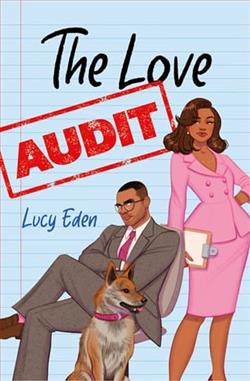Page 78 of A Murder in Trinity Lane
I swore under my breath.
His fiery gaze found me. “What was I to do? You cut off my allowance! I had expenses. So I was reduced to borrowing from friends.”
“Women. Liquor. What other expenses?”
“That’s it. Well, except for French letters.”
“At least you had enough intelligence for that.”
“You taught me well, Warwick,” he said with a crooked grin.
Unbelievable. He was trying to charm his way out of this. I’d coddled him long enough. Time to bring down the hammer. I drew a breath, steadying myself. “Here’s what you’ll do. You’ll give me a list of your debtors and the amounts owed. I will see all of them settled.”
Relief flickered in his expression. “Thank you, Warwick. I won’t—I won’t do it again.”
“You’re damn right you won’t,” I said, my voice resolute. “You’re leaving London. I’m sending you to Thornburn Abbey.”
Phillip recoiled, as if I’d struck him. “Thornburn Abbey? You can’t be serious. There’s nothing there. No clubs, no company, not even a decent bottle of brandy.”
There’s plenty there to occupy you. Fishing. Riding. And a library that runs floor to ceiling with books.” I let the words hang. “You might even read one. God knows, it wouldn’t hurt.”
Phillip’s face flushed. “Books were never easy for me.”
I scoffed. “They’re not meant to be easy. You just never tried.”
He looked away, jaw tight. “Right. Never tried.”
For a moment, the air between us held something heavier than anger—something neither of us was ready to name.
“You’ll stay there for the remainder of the season,” I said at last. “Mother and I will join you at the end of it. Nicholas, as well, if he’s returned from the continent.”
His mouth twisted in a stubborn pout, reminiscent of childhood tantrums long past. “I won’t stay. I’ll come back to London.”
“If you do, I’ll personally put you on a ship to India,” I said in a glacial tone. “Where you will remain without income. Without indulgences. And very much without my protection.”
Phillip blanched. “You’d exile me!”
“I’d save you from yourself.”
Silence settled between us, heavy and sharp. Only the tick of the mantel clock marked the moment.
Phillip’s voice, when it came, was small. “I didn’t mean to hurt anyone. I thought I was helping a friend.”
I stared at him for a long moment. “If Henry Vale is your idea of a friend, you need to start choosing better company.”
I turned for the door. “Our carriage is waiting. Harrington has already packed your things. You have fifteen minutes to get on board.” My hand touched the doorknob. “And Phillip?”
He looked up.
“I’ll be watching.”
I left without another word and crossed the street to a narrow public house with a crooked sign that creaked in the breeze. Inside, it was dim and smoky, the scent of ale clinging to the walls. I ordered coffee—strong, black, and undiluted by cheer—and found a seat by the window with a clear view of Phillip’s front door.
The minutes dragged as I watched the Steele carriage idling in front of Phillip’s lodgings, the driver still and waiting, the horses shifting restlessly in their traces.
Harrington emerged first to supervise the loading of a valise and two trunk boxes with the help of our footman. The man moved with brisk efficiency, a quiet satisfaction in every gesture. At least someone in that household knew how to follow orders.
Once everything had been stowed safely, Phillip appeared in the doorway.















